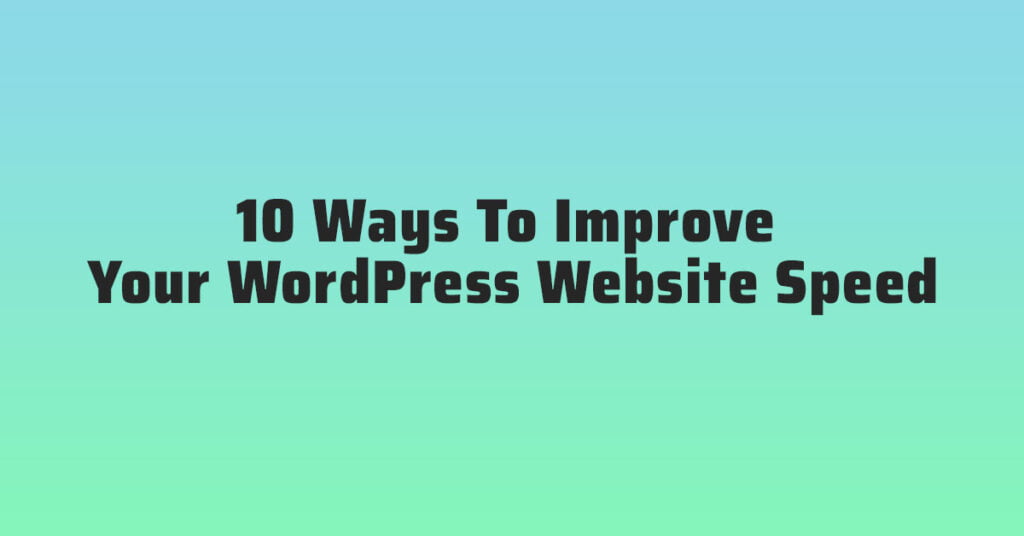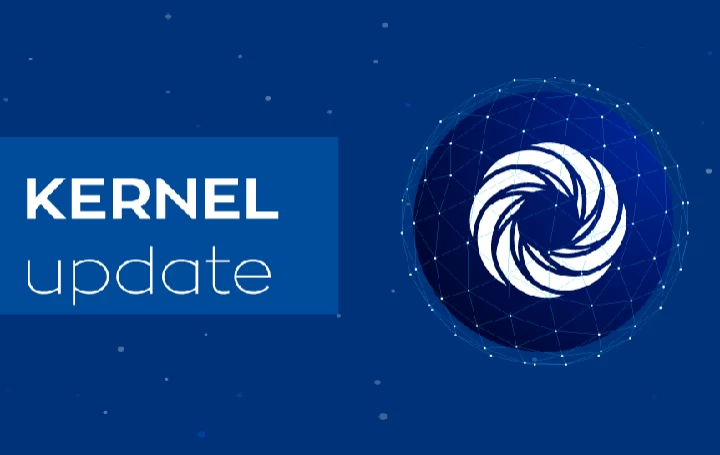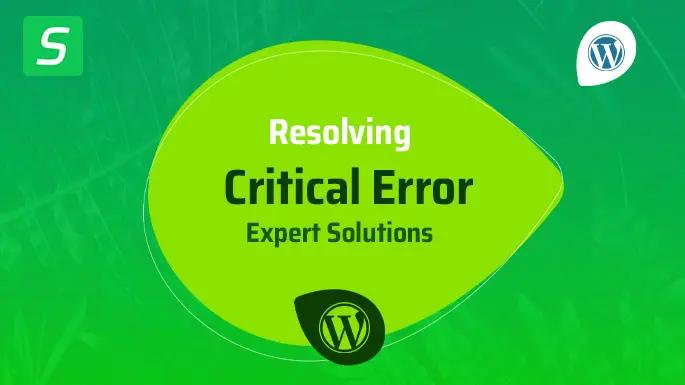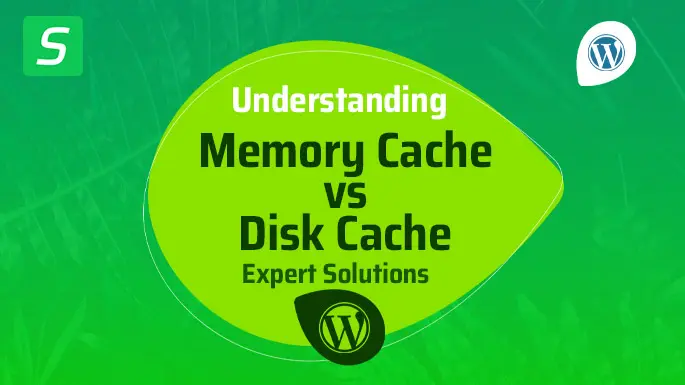Improve Your WordPress Website Speed : In today’s fast-paced digital world, website speed is more crucial than ever. Slow-loading websites not only frustrate visitors but can also have a significant impact on your search engine rankings. If you’re a WordPress user looking to enhance your website’s performance, you’re in luck! In this article, we will explore ten proven strategies to improve your WordPress website speed and deliver an exceptional user experience.
From optimizing images and leveraging caching to minifying CSS and JavaScript files, we will delve into the various techniques that can help you achieve lightning-fast loading times. Whether you’re a seasoned WordPress developer or a beginner, these tips and tricks are designed to be accessible and easy to implement, ensuring that you can start seeing improvements in no time. So, let’s dive in and discover how you can supercharge your WordPress website speed and leave your visitors impressed with a seamless browsing experience.
10 Ways to Improve Your WordPress Website Speed:
- Optimize images by compressing them and using the appropriate file format.
- Enable caching to store static files and reduce server requests.
- Minify CSS and JavaScript files to reduce their size.
- Use a content delivery network (CDN) to deliver content from servers closest to your users.
- Reduce the number of plugins and choose lightweight alternatives.
- Optimize your database by cleaning up unnecessary data.
- Use a lightweight theme or framework.
- Enable lazy loading to only load images when they are visible on the screen.
- Optimize your website’s code by removing unnecessary characters and spaces.
- Regularly update WordPress, themes, and plugins to benefit from performance improvements.

10 Ways to Improve Your WordPress Website Speed
In today’s fast-paced digital world, a slow website can be detrimental to your online presence. Users expect websites to load quickly, and if yours takes too long, they will likely move on to a competitor. Fortunately, there are several steps you can take to improve the speed and performance of your WordPress website. In this article, we will explore ten effective ways to enhance your website’s speed and ensure a seamless user experience.
1. Choose a Reliable Web Hosting Provider
The foundation of a fast-loading website starts with a reliable web hosting provider. Opt for a hosting company that offers high-performance servers specifically optimized for WordPress. Look for features such as solid-state drives (SSDs), built-in caching, and content delivery network (CDN) integration. A reputable hosting provider will ensure that your website is accessible and responsive, resulting in improved loading times.
2. Utilize a Lightweight WordPress Theme
The theme you choose for your WordPress website can significantly impact its speed. Opt for a lightweight theme that is optimized for performance, as these themes are designed to load quickly and efficiently. Avoid themes with excessive features and bloated code, as they can slow down your website. Instead, choose a theme that focuses on speed and minimalism, ensuring a faster and smoother user experience.
3. Optimize and Compress Your Images
To Improve Your WordPress Website Speed large image files can significantly contribute to slow loading times. To improve your website’s speed, optimize your images by compressing them without compromising their quality. You can use image optimization plugins or online tools to automatically compress your images. Additionally, consider using lazy loading techniques, where images are only loaded when they are visible on the user’s screen, further reducing loading times.
4. Implement Caching
Caching is a technique that stores static versions of your website’s pages, allowing them to load quickly for subsequent visitors. By implementing caching, you can reduce the processing load on your server and improve overall site performance. Utilize caching plugins like WP Super Cache or WP Rocket to generate cached versions of your pages and deliver them to users without the need for resource-intensive processing.
5. Minify and Combine CSS and JavaScript Files
Reducing the number and size of CSS and JavaScript files on your website can significantly improve loading times. Minify these files by removing unnecessary characters, white spaces, and comments. Additionally, consider combining multiple files into a single file to reduce the number of HTTP requests made by the browser. This optimization technique can help streamline your website’s code and improve its overall performance.
6. Enable Gzip Compression
Gzip compression is a method that reduces the size of your website’s files before sending them to the user’s browser. By enabling Gzip compression, you can significantly reduce the amount of data transferred, resulting in faster page loading times. Most modern web servers and caching plugins support Gzip compression, allowing you to enable this feature with just a few clicks.
7. Optimize Your WordPress Database
Over time, your WordPress database can accumulate unnecessary data, such as post revisions, spam comments, and expired transient options. Optimizing your database can help remove this excess data and improve your website’s performance. Utilize plugins like WP-Optimize or WP-Sweep to clean up your database and ensure its efficiency. Regularly optimizing your database can contribute to faster page loading times.
8. Reduce External HTTP Requests
External HTTP requests, such as loading scripts from third-party websites or social media widgets, can slow down your website. Minimize the number of external requests by only including essential scripts and widgets. Consider hosting scripts locally or using asynchronous loading techniques to prevent them from blocking other website elements. By reducing external HTTP requests, you can improve your website’s overall speed.
9. Utilize a Content Delivery Network (CDN)
A Content Delivery Network (CDN) is a network of servers distributed globally that stores cached versions of your website’s static content. By utilizing a CDN, you can serve your website’s files from servers located closer to your users, reducing latency and improving loading times. Look for a CDN service that seamlessly integrates with WordPress and offers easy setup and configuration.
10. Regularly Update Your WordPress Core, Themes, and Plugins
Regularly updating your WordPress core, themes, and plugins is essential for maintaining a fast and secure website. Updates often include performance improvements, bug fixes, and security patches. By staying up to date with the latest versions, you can ensure optimal performance and minimize the risk of compatibility issues that could impact your website’s speed.
Frequently Asked Questions
Below are some commonly asked questions about improving the speed of your WordPress website:
10 Ways to Improve Your WordPress Website Speed
WordPress websites can sometimes be slow, impacting user experience and search engine rankings. Here are some tips to improve the speed of your WordPress website:
1. How does caching help improve website speed?
Caching is the process of storing static versions of your website’s pages so that they can be delivered more quickly to visitors. By using caching plugins or server-side caching, your website can load faster as it doesn’t have to generate the page from scratch every time.
Additionally, caching reduces the load on your server, allowing it to handle more simultaneous requests and improving overall performance.
2. Why is choosing a lightweight theme important?
The theme you choose for your WordPress website plays a crucial role in its speed. Lightweight themes are designed to have minimal code and fewer resources, resulting in faster loading times. Avoid using heavy themes with excessive features and functionalities that you don’t need.
Opting for a lightweight theme not only improves website speed but also enhances security and simplifies website maintenance.
3. How does optimizing images boost website performance?
Images are often the largest files on a website and can significantly slow down its loading speed. Optimizing images involves compressing them without compromising on quality. You can use image optimization plugins to automatically compress and resize images, reducing their file sizes and improving website performance.
Remember to always use the appropriate image format (JPEG, PNG, GIF) and dimensions for each image to further optimize loading times.
4. What impact do plugins have on website speed?
While plugins enhance the functionality of your WordPress website, having too many or poorly coded plugins can slow it down. Each plugin adds extra code and may require additional server resources to function properly.
To improve website speed, regularly evaluate your plugins and remove any unnecessary ones. Prioritize using lightweight and well-maintained plugins from reputable developers.
5. How does website hosting affect speed?
The quality of your website hosting provider can significantly impact your website’s speed. Shared hosting, which involves multiple websites sharing the same server resources, can lead to slower loading times due to resource limitations.
Consider upgrading to a dedicated or cloud-based hosting plan that offers better performance and scalability. Look for hosting providers that specialize in WordPress hosting and offer features like caching, content delivery networks (CDNs), and server-level optimizations.
10 Best and Easy Ways to Speed Up Your WordPress Website (Seriously) – 2022
In conclusion, improving the speed of your WordPress website is crucial for the success of your online presence. By following the 10 methods discussed in this article, you can enhance the performance and user experience of your website. From optimizing images and using caching plugins to minimizing the use of external scripts, these techniques will help you streamline your website and ensure faster loading times.
By implementing these strategies, not only will you provide a seamless and efficient browsing experience for your visitors, but you will also improve your website’s search engine rankings. With a faster website, you can reduce bounce rates, increase user engagement, and ultimately drive more traffic and conversions. So, don’t overlook the importance of website speed – take action today and implement these 10 ways to improve your WordPress website speed for a better online presence.





